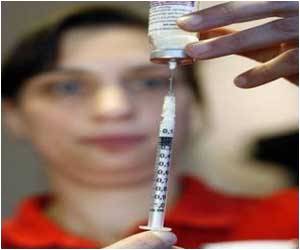
Bacterial pneumonia usually develops as a complication following a respiratory tract infection such as influenza. Symptoms include difficulty breathing, wheezing, fever and loss of appetite.
In September 2006, a vaccine known as PCV7 was introduced into the childhood primary immunisation programme across the UK, to protect against seven different strains of Streptococcus pneumoniae bacteria.
Today's study, led by researchers from Imperial College London, shows that in the first two years following the introduction of this vaccine, hospital admissions for bacterial pneumonia decreased by 19 per cent amongst children aged under 15 years. Admissions for empyema, a rare and serious complication of bacterial pneumonia, decreased by 22 per cent.
The pneumococcal vaccine is administered at two, three and 13 months of age. When it was first introduced there was a catch-up campaign for children up to two years. Take-up of the vaccine over the study period was high. It was administered to an average of 84 per cent of eligible children in England in the first year following its introduction and 91 per cent the following year.
The study showed that the number of older children admitted with bacterial pneumonia decreased, as well as the number of younger children, following introduction of the vaccine. This result suggests that vaccinating young children against bacterial pneumonia also provides protection for older, non-vaccinated children, providing 'herd immunity' by slowing the spread of disease.
Advertisement
The study has been published in the journal Thorax.
Advertisement











